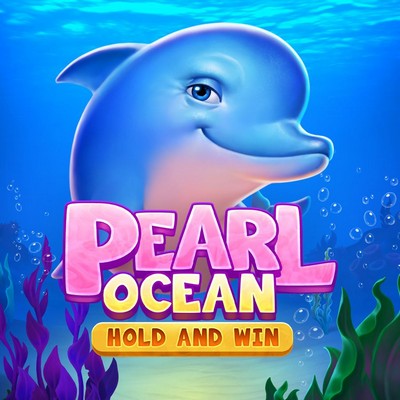Getredbet w Polsce
Kasyno Getredbet oferuje graczom niezwykle przyjazną platformę do gier, która oferuje to, co najlepsze w hazardzie. Firma została założona w 2023 roku, więc ma niewielkie doświadczenie na rynku, ale liczba graczy odwiedzających to kasyno jest ogromna!
| Oficjalna strona | hildabastian.net |
| Rok wydania | 2023 |
| Liczba gier | 4000+ |
| Bonus | 100% Do 2250 zł |
| Wersja mobilna | Android, Blackberry, Tablet, iPhone, iPad, Mac, PC, Windows, Windows Phone |
| Dostępne gry | Ruletka, blackjack, automaty do gry, wideo poker, krupier na żywo, wideo automaty, automaty progresywne, gry stołowe, zdrapki |
Kasyno Getredbet wypełnione jest ciekawymi grami stworzonymi przez jednych z najlepszych deweloperów w branży, co oznacza, że nie będziesz się tu nudzić! Na samym początku przygody operator oferuje hojną promocję powitalną, dzięki której saldo znacząco wzrośnie.
Kasyno opiera swoją działalność na rzetelnej licencji, która legitymizuje jego istnienie na terenie całej Unii Europejskiej i Polski. Co ważne, gracze w tym serwisie mogą liczyć na całodobową obsługę klienta, która okaże się nieoceniona w przypadku problemów wymagających rozwiązania.
Najlepsze bonusy w kasynach online: kompletny przewodnik po świetnych ofertach




Legalne kasyno Getredbet przygotowało dla graczy wiele atrakcyjnych promocji, dzięki którym stali gracze motywowani są do stawiania kolejnych zakładów, natomiast nowi gracze zachęcani są do założenia konta i dokonania depozytu. Mówiąc o promocjach warto zaznaczyć, że każda z nich posiada określone warunki bonusowe, które należy spełnić, aby wypłacić wygrane.
Ograniczenia obowiązujące w danym kasynie niejako pokazują, czy marka ta jest uczciwa, a jej promocje atrakcyjne, czy też nastawiona jest wyłącznie na łatwy zarobek, gdyż gracz nie będzie w stanie spełnić warunków promocji. W dalszej części artykułu omówimy najpopularniejsze promocje oferowane przez kasyno online Getredbet.
Bonus powitalny
Bonus powitalny w tym kasynie jest niezwykle hojny. Jego wartość to 100% bonusu do 600 PLN + 250 darmowych spinów. Aby aktywować promocję, minimalna kwota depozytu musi wynosić 60 PLN, a okres ważności to 7 dni. Oznacza to, że masz dokładnie tydzień na spełnienie wszystkich warunków promocji od momentu jej aktywacji. Obrót dla tego bonusu wynosi 40x. Będziesz musiał obrócić wygraną co najmniej 40 razy, aby móc ją wypłacić.
Darmowe obroty
Darmowe spiny są bardzo pożądaną ofertą dla graczy, ponieważ pozwalają zakręcić bębnami bez inwestowania własnych pieniędzy. Obecnie gracze mogą otrzymać darmowe spiny w ramach promocji powitalnej. Ich ilość wynosi 250 darmowych spinów. Można je wykorzystać w wielu grach, takich jak Gates of Olympus, Aztec Magic, Aztec Magic Deluxe, Johnny Cash, Platinum Lightning i Platinum Lightning Deluxe. Po dokonaniu pierwszej wpłaty gracze otrzymają 50 obrotów każdego dnia przez następne 5 dni. Okres aktywacji darmowych spinów wynosi 5 dni i tyle samo co promocja powitalna – 7 dni. Wygrane otrzymane w wyniku darmowych spinów muszą zostać obrócone 45 razy.
Bonus bez depozytu
Zakłady na Getredbet bonus bez depozytu to niezwykle kusząca oferta. Dzięki niemu gracze mogą obstawiać za darmo bez ryzykowania własnych pieniędzy. A najlepsze jest to, że będziesz mógł wypłacić wszystkie nagrody, które uda ci się zdobyć dzięki środkom bonusowym! Jest jednak mały haczyk. Aby to zrobić, musisz najpierw postawić wygrane określoną liczbę razy. Informacja ta zawsze znajduje się w regulaminie promocji. Niestety, operator ten nie oferuje obecnie żadnych promocji bez depozytu, ale śledź naszą stronę i Getredbet Casino, aby być na bieżąco. Zapisz się również do newslettera, ponieważ bardzo często możesz otrzymać na swój e-mail kod bonusowy Getredbet, który aktywuje promocję bez depozytu.
Kod bonusowy
Korzystając z kodu promocyjnego, możesz postawić więcej niż jeden zakład na bonus Red Casino. Kody to świetny sposób dla graczy na zdobycie dodatkowych nagród podczas gry w kasynie. Kod może aktywować wiele różnych promocji, takich jak cashback, darmowe pieniądze lub darmowe spiny do wykorzystania na automatach. Najlepsze jest to, że nie musisz robić nic poza wprowadzeniem kodu promocyjnego na pasku gracza, aby skorzystać z tej promocji. Aby otrzymać kod, należy zasubskrybować operatora Getredbet, a także zapisać się do newslettera. Kody promocyjne można również uzyskać, odwiedzając strony hazardowe, które gromadzą najlepsze promocje kasynowe na swojej stronie.
Program VIP w kasynie Getredbet
Witryna kasyna Getredbet nie oferuje typowego programu VIP, ale coś podobnego. Aktywnie grając i często obstawiając, możesz zdobywać coraz wyższe poziomy rakeback, które następnie określają, ile możesz zarobić na przegranych zakładach. Dostępnych jest wiele poziomów. Najlepsze jest to, że cashback zarobiony dzięki rakeback nie podlega wymogom obrotu, więc możesz wypłacić swoje pieniądze od razu.
Przegląd dostawców kasyn i gier: wybór najlepszych automatów i gier stołowych
Biblioteka gier operatora Bet On Red jest obszerna i można w niej znaleźć wiele kategorii gier. Wszystkie produkty są produkowane przez zaufanych dostawców, o których powiemy nieco później. Każdy rodzaj gry jest odpowiedni dla określonej grupy osób.
Automaty online najlepiej nadają się dla początkujących, ponieważ są bardzo łatwe w użyciu. Z kolei gry stołowe będą odpowiednie dla użytkowników, którzy mają podstawową wiedzę na temat pokera, blackjacka lub bakarata, podczas gdy kasyno na żywo jest miejscem dla osób szukających prawdziwych emocji związanych z hazardem.
Opcje płatności i wsparcie techniczne w kasynach online: bezpieczne transakcje i pomoc 24/7




Zakłady bukmacherskie Getredbet w Polsce umożliwiają graczom dokonywanie wpłat przy użyciu różnych niezawodnych metod płatności. Wszystkie z nich są niezwykle bezpieczne i przetwarzają transakcje stosunkowo szybko. Każda oferowana opcja ma określone limity, które są ustalane bezpośrednio przez dany system płatności, a nie przez kasyno.
Najpopularniejszymi kartami kredytowymi są Visa i Mastercard, aby doładować konto za ich pomocą wystarczy wprowadzić dane bezpośrednio na karcie, a płatność zostanie natychmiast zaksięgowana.
E-portfele, takie jak Skrill, MiFinity, eZeeWallet i Neteller są również często wybierane przez graczy, ponieważ są równie bezpieczne. Innowacją dla Polaków może być metoda BLIK, stworzona dzięki sojuszowi największych polskich banków. W tym przypadku płatności dokonuje się za pomocą kodu podanego w aplikacji banku.
Getredbet twierdzi, że posiada wysokiej jakości obsługę klienta działającą 24/7. Świetną funkcją jest czat na żywo umożliwiający szybką i łatwą komunikację.
Czat na żywo ma bota, który wysyła artykuły z sekcji FAQ; jeśli nie pomogą, łączy cię z agentem obsługi klienta. Gracz ma również link do osobnego centrum pomocy, w którym może znaleźć prawie wszystkie szczegółowe odpowiedzi; sekcja jest podzielona na kilka części i ogólnie wygląda bardzo przyjaźnie dla użytkownika.
